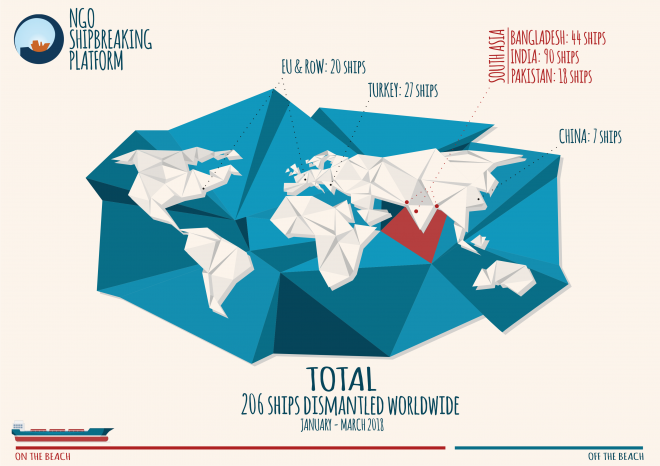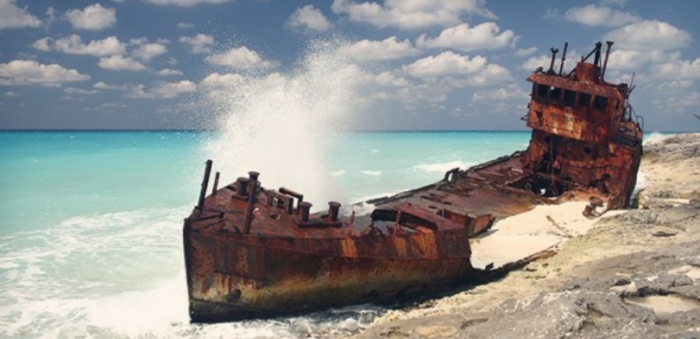Death rate in Southeast Asian shipbreaking yards for 2018 has so far seen an upsurge, with 10 fatalities and 2 serious injuries in Chittagong alone, according to figures published by NGO Shipbreaking Platform for the first quarter of the year. There was a total of 206 ships broken in Q1 2018, 152 of which were sold to the beaches of South Asia for dirty and dangerous breaking.
Highlights for Q1 2018
- South Korean and UAE ship owners have sold the most ships to South Asian yards with 14 beached vessels each, followed by Greek and Russian owners.
- Shipping companies from the United States beached 5 vessels.
- South Korean Sinokor is, for now, the worst corporate dumper with seven vessels beached in South Asia in 2018.
- South Korean H-Line Shipping is a close runner-up, with five ships sold for dirty and dangerous scrapping on the beach.
- Following the ban on the import of tankers to Pakistan due to major explosions that occurred in 2016 and 2017, no tankers were sold to the Gadani yards this first quarter. However, Pakistan has re-opened to the import of tankers last week.
- Only 3 ships had a European flag – Belgium, Italy and Norway – when they arrived on the beach.

The prices offered for ships this first quarter have been high in South Asia, especially when compared to the figures of last year, the Platform explained:
Whilst a South Asian beaching yard can pay about USD 450/LDT, Turkish and Chinese yards are respectively currently paying USD 280/LDT and USD 210/LDT. This situation led to especially a significant decrease in number of vessels recycled in China, where only 7 vessels were scrapped this quarter.
According to the Platform, a fire on the South Korean Sinokor-owned ‘Pacific Cape’ broke out on 18 February at the Jamuna Shipbreaking yard, costing the life of a fitter man, Harun, and causing serious burn wounds to workers Moajjem and Johirul.
The breaking of the tanker ‘Ekta’ at Zuma Enterprise yard has been particularly hazardous: there, two fatalities have been recorded on two separate occasions. Fitter man Muhammad Khalil fell from great height while working on the EKTA on 31 March; and only three days ago, on 24 April, Shahidul Islam died when hit by a falling steel plate.
There were victims in Indian shipbreaking yards this quarter too. The Times of India reported that two workers lost their lives due to a toxic gas leak on plot 32 on 14 March.
Earlier that month, it was reported that an accident happened on plot 7, where the tower of a rig crashed onto plot 9. The extent of damage and injuries caused is unknown.
The lack of transparency on the conditions at the yards in Alang is disconcerting – no record of any accident is made publically available by the GMB, the local authority regulating the industry….Ship owners continue to sell their ships to the beaching yards despite the well documented deplorable conditions.




































































